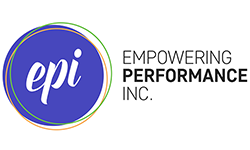Reading: A Raw Code for Learning
Michelle Kelly reading to infant daughter.
Do you remember a time in your life when reading was at the top of your “important tasks" list? I remember asking for “One more chapter!” or “Let me finish this page!” as I dove into a good book. When we're children, many day-to-day activities are focused around reading – our schooling, trips to the library, bedtime routines, etc. It seems instilled in us to read.
From early on with our daughter, my husband and I encouraged reading. We read to her throughout those sleep-deprived months of infancy. Then we read to her as a toddler, and I found she became an expert negotiator herself, asking for “Just one more book.” As she grew, so did her reading capabilities and I can see how reading has shaped her into who she is today. She found a new confidence in reading books out loud – it has not only improved her reading but has also enhanced her skills in her theater classes.
While we’ve continually focused on Josie’s reading, life tends to add more items to our list of important tasks than it removes. And while I always had a book on my nightstand, I wasn't always able to read for long stretches of time. But after busy phases in my life, when I wasn't able to read as much as I wanted to, I now make it a point to read and read often!
I typically have two or three books going at the same time. At least one of these books is focused on business and entrepreneurship, but I also make sure one of them is a book for pleasure.
It may seem obvious that reading is important, but adults often see their volume of reading slip.
Our brains, like our bodies, require exercise to stay strong and healthy. Reading is lifting weights for the mind.
Reading has a significant number of benefits including:
Stimulates intellect
Reduces stress
Expands knowledge
Enhances memory and vocabulary
Heightens analytical skills
Increases focus
Improves writing skills
Exercises imagination
Reading literary fiction increases empathy
Provides hours of fun!
In addition, researchers at the Yale School of Public Health found a hopeful pattern:
People who read books for as little as 30 minutes a day over several years live an average of 2 years longer than people who don't read.
We hope that's true! But longer-lived or not, fiction or nonfiction, poetry or prose, it's the engagement between reader and author that matters.
Neil Gaiman says what writers give us is a raw code that we use to build the stories ourselves. Every reader is a collaborator.
Reading is a part of the culture at EPI. Our team huddles and group chats are dotted with book suggestions. You can read about our summer leadership reading list here. As the summer winds down and fall is around the corner, I'm left with the feeling of something new starting. And I’m reminded that learning isn’t just for the young; it’s also for adults as an imperative for lifelong learning and development.
So, take that “raw code” and run with it.
Michelle Kelly, CEO (Chief Enjoyment Officer)


